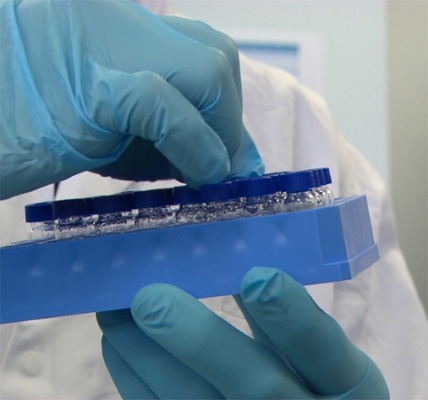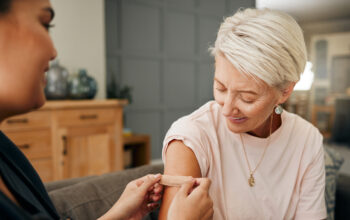An important milestone in the search for an Ebola vaccine
 It seems there is always a new story in the media about an emerging health threat. Right now, understandably, there is significant public concern about the spread of the Zika virus.
It seems there is always a new story in the media about an emerging health threat. Right now, understandably, there is significant public concern about the spread of the Zika virus.
But just over a year ago, it was the Ebola virus and its devastating impact in West Africa that dominated the headlines.
The Ebola epidemic in West Africa may have subsided, but not after leaving a huge human cost—over 11,300 lives were lost, tragically, in the outbreak. Far too many families and communities in the countries of Sierra Leone, Guinea and Liberia were devastated.
Today, flare-ups of Ebola continue in the region because the virus can persist in the bodily fluids of survivors. And experts predict that another Ebola outbreak—somewhere in the world—is highly likely. So we can’t afford to move on from Ebola until we develop the tools to defeat it.
That’s why Johnson & Johnson entered into global private-public partnerships with some of the world’s leading health and research organizations to advance an Ebola vaccine regimen in development at our Janssen Pharmaceutical Companies.
The vaccine regimen uses a “prime-boost” regimen, in which one vaccine dose is given to prime the immune system, and then a second vaccine is administered with the goal of boosting the immune response.
Today, we are very excited to reach a key milestone: the publication in JAMA: The Journal of the American Medical Association of a study reporting the first clinical results for the vaccine regimen.
The study, which was conducted in the UK, found that 100% of healthy volunteers developed antibodies against Ebola after being vaccinated, and that this immune response was still observed in all volunteers when they were tested again eight months later.
The research is early-stage, and we have many more studies to complete. But these promising results suggest that the Ebola prime-boost vaccine regimen, if ultimately approved by regulators, could be an important tool in global strategies to help prevent another Ebola epidemic.
The UK study was made possible by our incredible partners, including the London School of Hygiene & Tropical Medicine, the University of Oxford, Inserm (the French National Institute of Health and Medical Research), Europe’s Innovative Medicines Initiative and Bavarian Nordic.
We’re very proud of today’s study results, and of all of our partners. Yes, we have a long road ahead of us, but we will continue to stay focused on this global health challenge until we deliver an effective vaccine for Ebola.
We’re determined to play our part so that the world is better prepared to prevent this devastating disease.
Author





